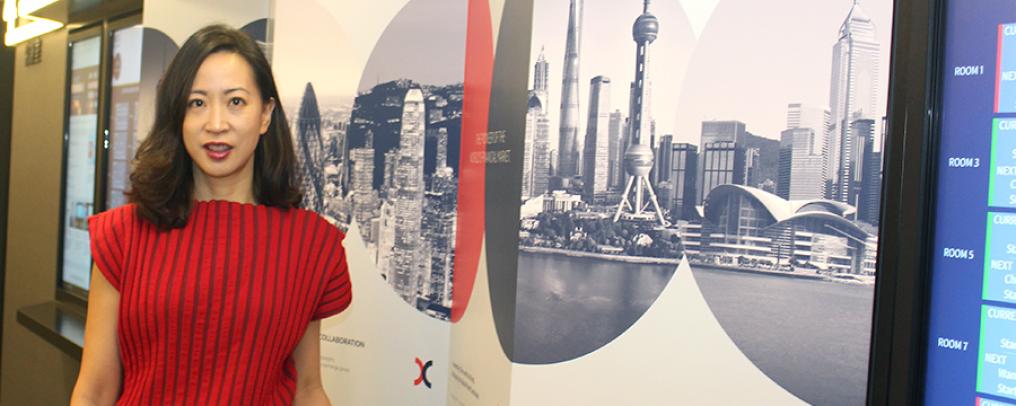Tim Lui Tim Leung SBS JP, Chairman of the Securities and Futures Commission, focused his Guest of Honour speech at The Hong Kong Institute of Chartered Secretaries Annual Dinner 2020 on the need for companies to adopt high governance standards to improve their long-term value.
First of all, let me offer my hearty congratulations on the 70th anniversary of The Hong Kong Institute of Chartered Secretaries (the Institute). The Institute has an impressive track record of upholding high standards of secretaryship. Since its founding, it has been dedicated to the development of professionals in Hong Kong and the Mainland. It also plays a key role in promoting sound corporate governance and helping develop a robust legal and regulatory framework for Hong Kong.
This is more important than ever. Markets today are now more global and interconnected. How things have changed since the late 1970s, when I joined the London office of Coopers & Lybrand. When I returned to Hong Kong in 1984, the Mainland was just starting to open up. I was the senior tax partner for many years and worked on both the management and governance sides of my firm.
In 2018, I moved over to the regulatory side. This was the first and only career change in my life. Nowadays, many young people are amazed to hear that I only worked in one company for 40 years. My experience at the Securities and Futures Commission (SFC) has so far been both challenging and rewarding. It quickly became clear to me that regulators and accountants have many things in common: both have to make sure that listed companies stay on the straight and narrow, both have to protect the interests of minority shareholders and both have the greater goal of ensuring integrity.
Company secretaries also play an essential role in these efforts. At the end of the day, effective corporate governance depends on the values of the people who run the company.
Corporate governance values
This lesson is all too clear from the major corporate scandals we have seen over the past couple of decades. These failures shook financial markets and the repercussions were felt all over the world. One of the biggest was the collapse of Enron and its auditor Arthur Anderson, which was one of the ‘Big Five’ accounting firms at that time. Enron falsely inflated its revenue and its top executives went to jail for one of the biggest accounting frauds in history.
It is worth remembering that before its bankruptcy, Enron had a distinguished board of directors. Its audit committee was made up mostly of outsiders who were leaders in their respective fields, or that was how it looked on paper. In reality, Enron’s corporate governance practices left a lot to be desired. That is an important lesson in what happens when corporate governance fails.
But when it succeeds, there is clear evidence good corporate governance pays off in the long term. A recent study of the Morgan Stanley Capital International World Index found that companies with good corporate governance outperformed by an average of 24 basis points per month during the 10 years up to 2018.
Time and again, companies with strong governance perform better and create more value. This should be a major incentive for listed companies to adopt high governance standards to improve their long-term value.
Role of company secretaries
The duties of company secretaries vary from organisation to organisation, but they really boil down to this: you play a vital role in raising governance standards and ensuring the effective functioning of the board and its committees. You are in a unique position to create the right culture for good corporate governance and to guide management and the board of directors on how best to meet their responsibilities. This is far more than just a compliance role.
Understandably, the roles and responsibilities of company secretaries in Hong Kong have become more complex as a result of calls for better corporate governance. Also, our listed market is now much larger. The number of Hong Kong listed companies was 2,449 as of December 2019. This increased 6% in just one year. So there are clearly significant career development opportunities for experienced Chartered Secretaries. Some of them will eventually go on to become chairmen, chief executives and directors of listed companies.
The SFC’s front-loaded regulation
Let me say a bit here about what the SFC has been doing to promote better governance and protect the integrity of Hong Kong’s markets. You might have heard about the SFC’s front-loaded approach to regulation. This involves the use of earlier, more targeted intervention to tackle market irregularities. In many cases, we now directly intervene to prevent misconduct and harm to investors before it occurs. We deal directly with listing applicants at the initial stage of vetting initial public offerings and with listed companies in corporate transactions. We may object to a listing or a corporate transaction, or require the Stock Exchange to suspend a stock.
One obvious outcome has been a substantial drop in the first-day price change of newly listed GEM stocks, which on average was a staggering 874% in January 2017. It is now down to only around 10%. This shows that market behaviour has changed for the better.
I should emphasise that this front-loaded approach complements our enforcement actions, but it does not replace them. We still have the option to pursue civil and criminal proceedings, including compensation or disqualification orders against senior management for misconduct such as breaches of directors’ duties. In serious cases, some have faced jail time for insider dealing or market manipulation.
Latest ESG developments in Hong Kong
Lastly, I would like to briefly mention environmental, social and governance (ESG) factors. Climate change is a real threat. It is fair to say that all companies are exposed to some measure of ESG risks. Good corporate governance requires companies to take these factors into consideration.
In December 2019, the Stock Exchange concluded a consultation on its ‘Review of the ESG Reporting Guide and Related Listing Rules’. Key changes include mandatory disclosure of significant climate-related issues. The disclosure obligation of all ‘social’ key performance indicators was also upgraded to ‘comply or explain’. We welcome these changes, which will promote quality ESG reporting.
At the SFC, we published our own ‘Strategic Framework for Green Finance’ in 2018. In the near term, our key focus will be on promoting better management of climate change risks in asset management. As part of this, we conducted a survey of more than 1,000 asset management firms. We asked them whether and how they integrate ESG factors and climate change related risks into their investment and risk management processes.
We found that most asset managers considered at least one ESG factor when assessing a company’s investment potential. Moreover, the majority of them acknowledged that ESG factors could be a source of financial risk and may have an impact on investment portfolios.
We also surveyed asset owners to better understand what they expect from asset managers when it comes to ESG investment and climate risk management. Increasingly, ESG factors will be key to making informed investment decisions and allocating capital efficiently. The trend is clearly towards more ESG disclosures and companies that do not measure up may lose out.
Promoting market integrity
Before I finish, I want to emphasise once again that markets are now much larger, more complex and more connected than ever. But one thing has not changed: that is the SFC’s commitment to protecting the integrity of Hong Kong’s markets. This is a big part of our mission to deliver world-class regulation and bolster Hong Kong’s status as a leading international financial centre.
When I was interviewed recently for the Institute’s member publication CSj, I was asked whether Hong Kong needs to raise its game in terms of corporate governance. I mentioned the ‘CG Watch 2018’ report published by the Asian Corporate Governance Association. Hong Kong moved up to number two and was second only to Australia in the Asia Pacific region.
With corporate governance there is always room for improvement. The SFC takes this very seriously and our investigations into corporate misgovernance cases are up nearly 30% in the past three years. I firmly believe that good corporate governance helps increase investor confidence and promotes market integrity and efficiency. It also makes Hong Kong more competitive and is pivotal to its position as a leading global financial centre. This article is based on the Guest of Honour speech by Mr Lui at The Hong Kong Institute of Chartered Secretaries Annual Dinner held on 16 January 2020 at the JW Marriott Hotel Hong Kong. See the June 2019 edition of this journal for the In Profile interview Mr Lui mentions in the article.



